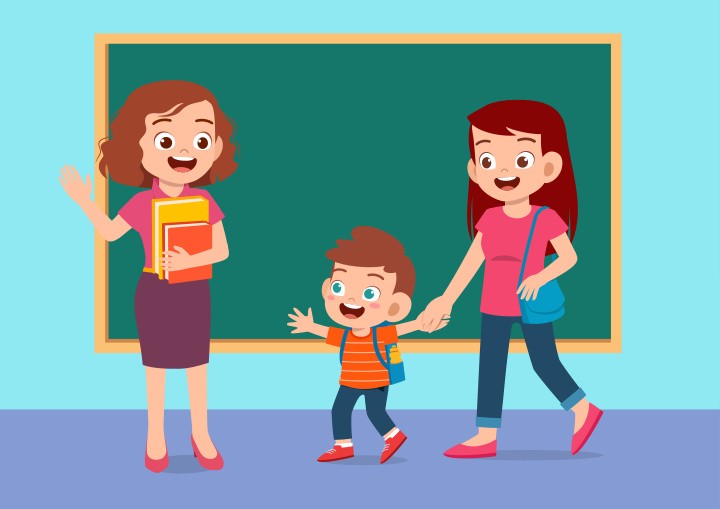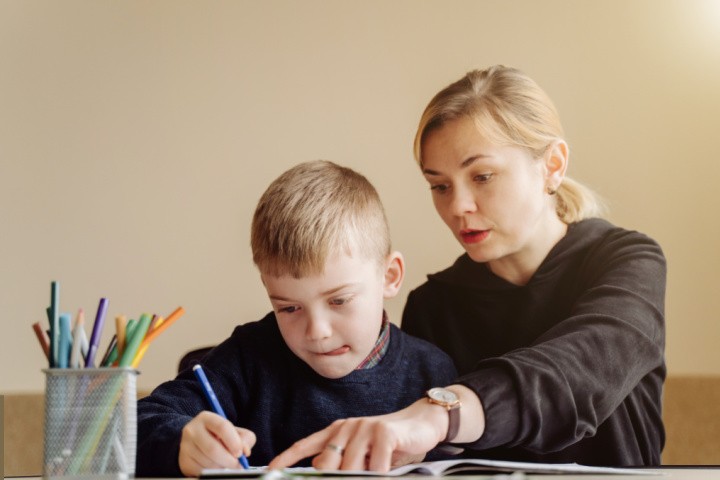Why Parent Involvement Is Important To A Child’s Success
Table of Contents
- What is Parent Involvement
- Difference Between Involvement And Engagement
- Why Is Parent Involvement Important
- When Is Parent Involvement Not Good
- Quantity vs Quality
- Controlling Parent Involvement
- Autonomous Supportive Parent Involvement
In recent years, parent involvement has been widely accepted as the key to improving children’s academic performance and expected in good parenting. Teachers often engage parents through the school curriculum. It is not uncommon to see “parents’ help needed” in school projects.
But not all research comes to the same conclusion.
Let’s find out if parental involvement is the magic bullet in improving students’ performance and closing the achievement gap.
What is Parent Involvement
Parent involvement refers to the collaboration between the parents and the school to improve children’s education experience and academic performance. Countless studies have found that parental involvement in education is important to a child’s success in school.
Parents can become involved in school work in many ways.
Parent involvement can include discussions after school, helping with homework assignments, engaging in extracurricular activities, keeping abreast of academic progress, imparting parental values, participating in parent-teacher meetings, attending school activities, and volunteering in the classroom.
Difference Between Parental Involvement And Engagement
In the past, parent involvement was the focus of building successful partnerships between parents and teachers. Family involvement is an extended form of parent involvement.
The switch from emphasis on parent involvement to family engagement started when the Elementary and Secondary Education Act of 1965 was reauthorized as the No Child Left Behind Act in 2002.
The new terminology emphasizes the importance of engagement from the entire family, such as grandparents, aunts, uncles, and even the community, to form school, family and community partnerships.
In addition to including other family members, reframing parent involvement to family engagement redefines how family members are taking a more active role in kids’ education. They are not just passively being present any more.
The National Association for the Education of Young Children NAEYC defines parent involvement and family engagement as:
- create and sustain student learning activities at home to enhance the child’s strength
- family and school collaborate through effective two-way communication
- ongoing participation to build true relationships and shared responsibility
- engage families and community by building upon interests and skills

Why Is Parent Involvement Important In The Success Of Children
A meta-analysis of 66 studies shows that the most accurate predictors of student success are not family income or social status, but the extend to which parents and teachers work together to facilitate the child’s education.
Extensive research shows that family-school partnerships in education matters because they correlate with better academic success in children. In elementary school, students with involved parents attend school regularly, have better social skills and improved classroom behavior.
Research has also shown that students earn higher grades when parental support enhances the students’ feelings of self-efficacy and self-esteem, and when they feel that their parents pay attention and care about their education.
When Is Parent Involvement Not Good For Kids
According to a growing body of research, parents’ involvement in their children’s academic life positively affects their performance.
However, not all research results are consistent. Some studies find mixed or contradictory conclusions regarding parental involvement.
The majority of the studies measured the quantity or frequency of parental involvement without taking into account the students’ prior achievement, their family background, or the quality of parental involvement.
Quantity vs Quality In Parent Involvement
Not every type of parent involvement is associated with good outcomes. Effects of parental involvement in education are not always positive.
When parents involved are controlling, the outcomes tend to be negative.
As one of the closest points of convergence between school and home, homework is where parents can be most involved.
By distinguishing quantity and quality of parental homework involvement, some studies show totally different conclusions.
For example, when parents are negative or controlling, their frequent involvements decrease the child’s achievement. But homework help that is perceived as supportive has positive effects on academic performance.
Controlling Parent Involvement
Controlling parents feel that they need to have tight control over their children to ensure their success. They pressure their children to achieve and solve problems for them without being asked to. They often take the parental perspective and ignore the child’s wishes.
One example of controlling parental involvement is in homework supervision.
Researchers define controlling involvement as excessive pressure on the child to complete assignments, check if the child has completed their homework, get involved in homework without being asked, and punish the child if homework is not complete.
Controlling parent behavior decreases a child’s intrinsic motivation. Such engagement undermines children’s learning motivation and the child’s sense of personal value and responsibility.
Parental pressure also correlates with worse test scores.
The more controlling the parent and behavior, the worse the child performs in school.
Examples of controlling parent involvement include:
- Parents work with their child to complete homework unrequested
- Check on homework and force completion
- Direct instructions that undermine intrinsic motivation
- Give privileges because of good grades
- Limit privileges because of poor grades
- Demand student work or chores at home
- Limit time watching: TV or video games
- Limit time out with friends on school nights

Autonomous Supportive Parent Involvement
Parents’ involvement is helpful when their action shows that they value their child’s education and are not trying to be controlling.
A child who receives autonomous support from an involved parent tends to have better academic performance. These parents allow their children to initiate learning instead of pushing them to do so.
Autonomous supportive parents focus on the learning, not the grades. They provide assistance and only engage as determined by their kids. They are sensitive to their children’s needs and are available to help with homework when requested.
Children with autonomous support are in control of their own activities. They are intrinsically motivated to learn and perform better academically.
Other examples of autonomous support parent involvement ideas include:
- attend parent-teacher conferences
- attend school events in which the student participates
- volunteer at the school
- encourage participation in activities the student is interested in
Need Help Motivating Kids?
If you are looking for additional tips and an actual step-by-step plan, this online course How To Motivate Kids is a great place to start.
It gives you the steps you need to identify motivation issues in your child and the strategy you can apply to help your child build self-motivation and become passionate about learning.
Once you know this science-based strategy, motivating your child becomes easy and stress-free.
Final Thoughts on Parent Involvement in Education
When schools encourage parents to get involved, it is important to provide guidance to help parents support their kids positively. Autonomous supportive parents are not only good for the child’s academic success, but they also have positive impact on the child’s well-being, both physically and mentally.
When schools engage parents in the learning process, children also tend to have more health promoting behaviors such as physical activity. Connectedness to family is also associated with fewer reports of suicidal ideation in children. Working together, school and parents can become invaluable support networks for children and adolescents.
-
When you have a child, her development is of the utmost importance to you. You may want to be involved in every facet of your childs life. While this includes her education, there are some distinct advantages and disadvantages of parental involvement
-
Born in 1896 in Russia, Lee Vygotsky died of tuberculosis at age 37. Yet his early demise did not prevent him from ranking among the psychologists who have had the greatest influence. His incomplete theory on child psychology held that community and
-
What are logical consequences | Differences between natural and logical consequences | Benefits | When to use | Dos and Don’ts | When natural consequences cannot be used | What if natural consequences don’t work What Are Natural Consequ


